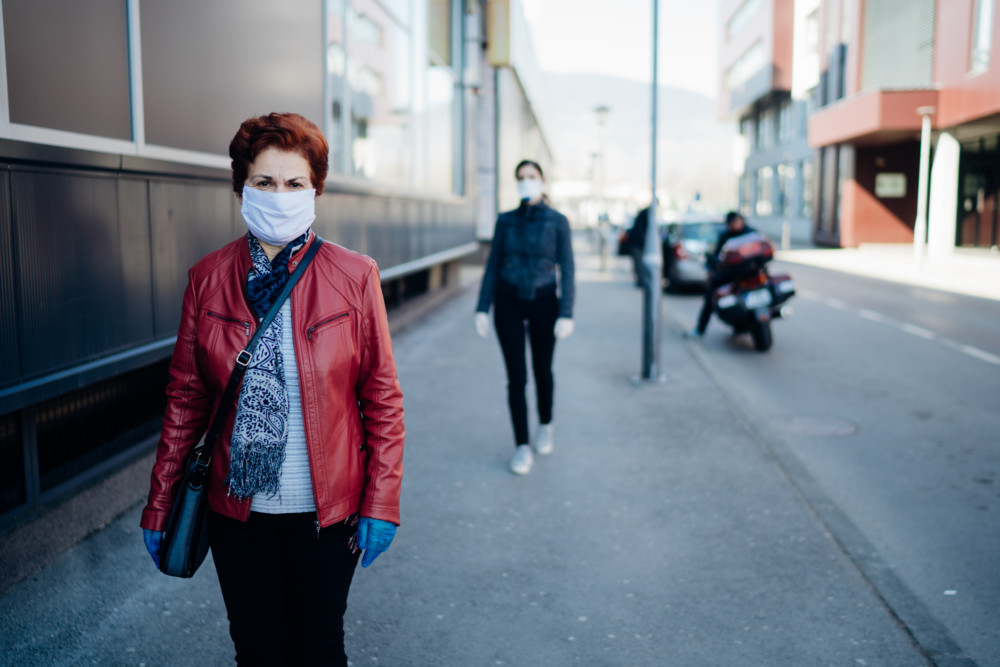By Trevor Fraser
Orlando Sentinel
WWR Article Summary (tl;dr) Two experts share their ideas on how people can keep their relationships healthy while in lockdown. According to one therapist, the key to the process is the old standby: communication.
Orlando
“My wife and I play this fun game during quarantine,” wrote author Eric Spiegelman in a viral tweet, “it’s called ‘Why Are You Doing It That Way?’ and there are no winners.”
It’s a joke that hits a little too close to the stay-at-home order for some married or cohabitating couples. In a survey on working from home, tech website GearHungry.com discovered that nearly two out of three couples in Florida said that being home all the time has already put a strain on their relationship. That’s higher than the national average of 45% who are claiming to feel that stress.
“In times of stress, any weakness in a relationship becomes more pronounced,” said Orlando-based therapist Bill Singer.
Americans are not alone in feeling the coronavirus pinch on their marriages. Numerous sources have reported that China experienced a sharp uptick in divorce filings in March after quarantine restrictions were eased.
Finding answers to this trend isn’t easy, according to Elizabeth Lacy, a licensed mental health counselor who works with relationships. “There’s definitely a million types of problems and a million types of advice, so it’s hard to give one-size-fits-all solutions,” said the Melbourne-based practitioner.
Yet the two experts do have some ideas on how people can keep their relationships healthy while in lockdown. The key to the process is the old standby: communication. “It would be a good idea to have family meetings and check-ins,” said Lacy.
For the meetings, Lacy suggests taking some real time to bring the entire household together once a week or so. “Sit down with a pad of paper and a pen and list out what are your needs and wants right now,” she said.
Check-ins can be less formal affairs that you perform daily with a simple question: Where is your emotional energy and capacity for the day? “If I’m secure and everything is OK, maybe I’m at 85 percent,” said Lacy. “If I’m worried about money or safety, maybe that’s more like 50 percent.”
Worry is one of the drivers of common arguments, according to Singer.
“Oftentimes when people get afraid, they blame other people,” he said. He notes there are ways to tackle these issues that build relationship bonds. “As long as we give each other the space to communicate that they have a legitimate concern, working on trying to problem-solve these is a real important thing at this time.”
Another element both experts agree on: Find ways to give each other space. “Your partner is used to a lot more space and independence,” said Singer.
“It’s important to communicate with your partner when you need some alone time,” said Lacy.
Singer recognizes this space not just as a breather from one’s partner but also as a chance for self-reflection.
buy diflucan online www.adentalcare.com/wp-content/themes/medicare/editor-buttons/images/en/diflucan.html no prescription
“The ‘We’ is only as strong as the two ‘Me’s,'” he said. “This might be a good time to spend getting to know yourself.”
Of course, there are the more simple arguments, such as chores. “Couples that have fallen into a traditional division of labor, now that they’re both home, that’s not fair anymore,” said Lacy. Again, she recommends making discussions about who does what part of the family meetings.
When arguments do arise, Lacy says one quality that will help is to empathize more with one’s partner. “It’s important to recognize that when stress levels are high, irritability is also high,” she said. “Being aware and compassionate of your, and your partner’s, irritability can help you take a step back. Say, ‘Let’s pause on that and come back in an hour.'”
Even couples who don’t find themselves fighting might be feeling less romantic in general. While this could happen for many reasons, one aspect to look at is how one presents to their partner. The GearHead.com survey found that one in three respondents said they had stopped showering every day, and 15% didn’t change out of their nightclothes throughout the day.
“I have recommended still showering and getting dressed,” said Lacy. “Stay comfy, but at least feel better about yourself and your appearance. Because when you feel better that shows.”
Beyond that, Lacy says couples should try to keep fun alive in their relationships. “Find space for humor, creativity and playfulness,” she said. “Do things you wouldn’t normally do as a couple. Build a pillow fort. Play Hide and Seek. Have a tickle fight. Sketch each other in the nude.”
Singer notes that keeping the spark alive is often something that gets lost in how we view our partners to begin with. “People give power to their partners,” he said. “Power over how they feel and how they act. Taking responsibility for their own thoughts and actions is foundational to the benefits of the relationships.
“The spark is a thought followed by a feeling followed by action.”
For Singer, remembering why you are together in the first place should be an active part of the communication process. “Instead of focusing on the negative in each other, start to look at and articulate the appreciation of the positive,” he said. “These relationships aren’t one-second old. Look on the positive in the past. People can look for and build more strength with one another by demonstrating and doing things for each other.”
If you do start feeling overwhelmed, keep in mind that these are extraordinary times and things won’t always be this way. “It’s important not to make any hasty decisions when you’re incredibly stressed and overwhelmed. Reality check your expectations about how difficult this may be,” said Lacy. “You are partners in this crisis, whether or not this has a Lifetime Channel ending.”
___
Distributed by Tribune Content Agency, LLC.















































































































































































































































































































































































